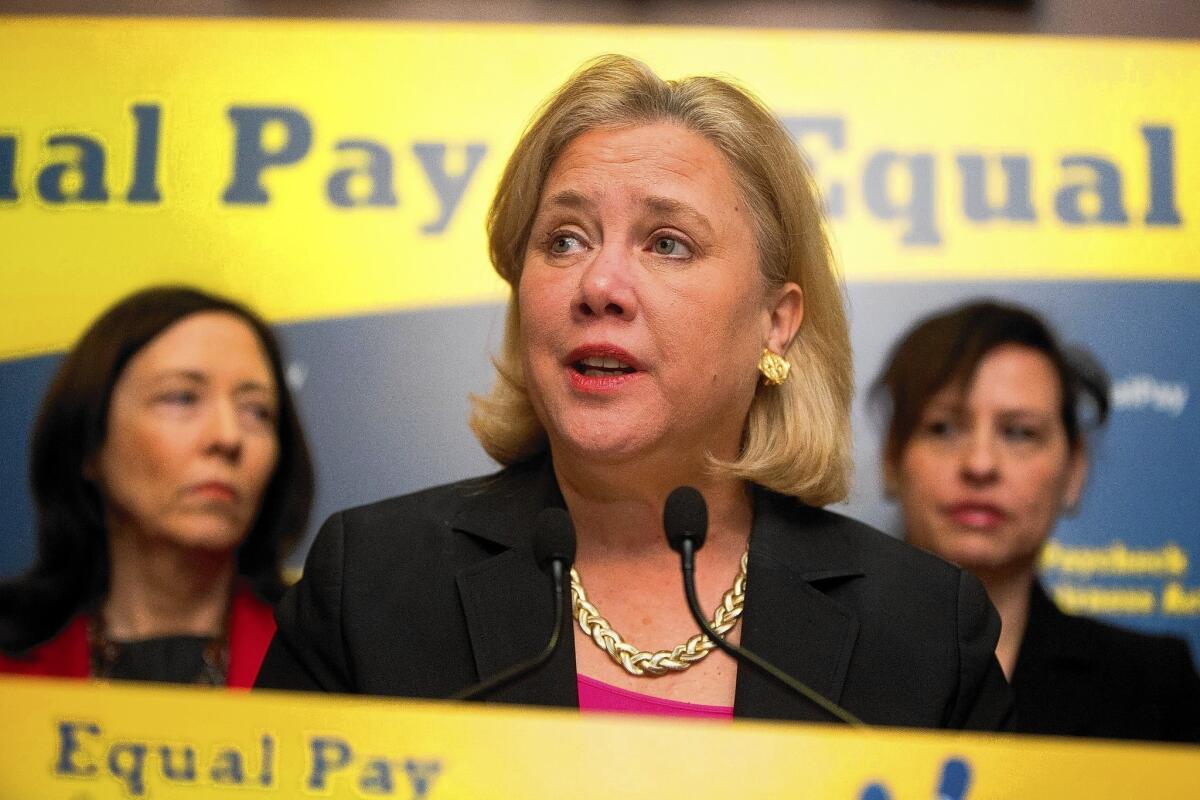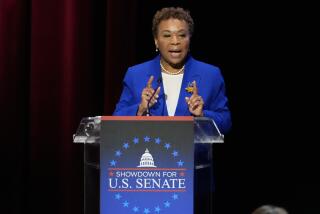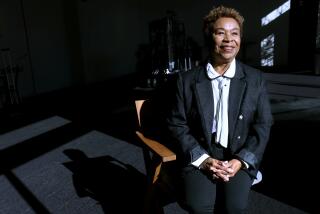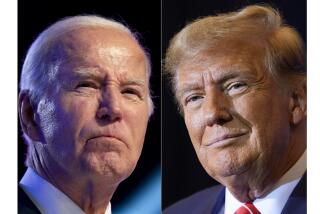Louisiana Senate contest embodies Democrats’ task: win black voters

Mary L. Landrieu is one of the most vulnerable Democrats in the U.S. Senate, and her chances of reelection this fall could come down to her ability to turn out African American voters like Barbara Brown.
Standing outside Franklin Avenue Baptist Church in the crisp white suit that marks her as an usher, Brown pursed her lips at the mention of months of television ads that have already aired attacking Landrieu and her vote for the national healthcare law, which Brown sees as an unfair rebuke of President Obama.
“Just disgusting — enough to make you sick to your stomach,” Brown said. All that criticism of Landrieu for “standing on the president’s side,” Brown said, has made her even more committed to supporting the three-term senator this fall and encouraging others to do the same.
“I like what she said,” Brown added, using a Landrieu line that appeared in one of the ads critical of the senator’s position on the healthcare law: “She says, ‘If I had to do it again, I would do it again.’”
Few senators up for reelection this fall face a more complex balancing act than Landrieu, who hails from a state that Obama lost by 18 percentage points in 2012. She is aggressively pursuing independents and Republicans, who have been key to her past wins but are unhappy with Obama’s performance. But central to her chances is reversing the traditional midterm drop-off in voting by black Louisianians, who make up 31% of the electorate.
Landrieu’s task reflects a larger imperative for Democrats this year and in 2016: to guarantee a massive turnout by the party’s most loyal voters when the nation’s first African American president is no longer anchoring the ballot.
Landrieu will have powerful partners this fall. Strategists at the Democratic Senatorial Campaign Committee are hiring field organizers for a $60-million effort in a dozen states to swell turnout among core Democratic groups such as African Americans and single women.
The goal, said Matt Canter, the committee’s deputy executive director, “is to make the electorate look more like it did in 2012 than it did in 2010.” With the data-driven tools that helped power Obama’s two presidential wins, he said, “we can alter the electorate.”
In five states that could be the most crucial to continued Democratic control of the Senate — Arkansas, Georgia, Louisiana, Michigan and North Carolina — party strategists believe there could be as many as 1.4 million unregistered African American voters, and they have already begun to pursue them.
According to the latest figures from the Louisiana secretary of state, about 87% of African Americans are registered to vote — with a remarkable 95% of African American women registered. (In California, 73% of eligible voters are registered.) Many of Louisiana’s residents were displaced by Hurricane Katrina, but black voting strength has largely returned to pre-storm levels, and almost all those votes go to Democrats.
Yet turnout by black voters can drop as much as 5 percentage points in midterm races compared with presidential contests — and such a shortfall this year could be devastating for Landrieu.
Under the state’s unusual rules, a candidate must win more than 50% of the vote in November to avoid a runoff. Landrieu fell under that mark in her second Senate race in 2002, but in a move that may presage her strategy this time, she eventually won in part by increasing the number of African American voters who showed up for the runoff.
Interviews with black voters here hint at her advantages and challenges this fall. Many still speak reverently about her father, Moon Landrieu, and his efforts to integrate City Hall as New Orleans mayor in the 1970s. Her brother Mitch handily won reelection as mayor in February with 64% of the vote in the majority African American city, following an intense get-out-the-vote drive that could lay some of the groundwork for his sister in November.
At black churches here, many voters like Brown described Mary Landrieu as a frequent visitor — praising her attentiveness and tendency to linger after services.
“She’s one that you can touch,” Brown said, describing how fellow congregants line up between services to “bombard her” with questions. “She’ll try to answer, and then you’ll see her with a piece of paper saying, ‘I’m going to write that down and check on it next week — and what’s your number? I’m going to give you a call.’”
“That means a lot,” Brown said. “You’re taking the time with the little people, the small people, and you are addressing what their concerns are.”
Landrieu may also benefit from a backlash to the fusillade of ads aimed at her and, by extension, at Obama. Americans for Prosperity, the free-market advocacy group funded in part by the conservative brothers Charles and David Koch, has already aired $3 million in negative ads with more than six months to go.
Landrieu herself has been careful not to similarly alienate black voters; her initial ad, which sought to create some distance from Obama’s healthcare program by emphasizing her desire to fix it, did not run in the New Orleans media market, one of the strongholds for the state’s black voters.
“It makes me angry that they are attacking [Landrieu’s] character, her vote and her support for the president and for his issues,” Rebecca Harris-Smith, a 59-year-old nurse educator, said after a recent church service in New Orleans East. Like many others, Harris-Smith shrugged off Landrieu’s attempts to distance herself from the administration. “We’re not going to all agree with everything all the time.”
When asked to rate Landrieu, African American voters here most often noted her work on local issues such as restoring the coastline and bringing in federal money for rebuilding after Hurricane Katrina. Many credited her for recent legislation that halted the skyrocketing increases in their flood insurance rates — a bill that both she and her chief Republican opponent, Rep. Bill Cassidy, pushed through Congress.
Ronald Davis, a 50-year-old construction worker from New Orleans East, said Landrieu’s work on the flood insurance issue alone would get him to the polls. “If it had tripled,” he said of his premium, “man, I would have had to think about moving away from here.”
Voters also noted Landrieu’s support of the president’s proposal to raise the minimum wage to $10.10 an hour (though Landrieu still wants to see some changes to the legislation to provide more support for small businesses).
“At one time the Burger King, the McDonald’s jobs, they were for high schoolers,” said Hersey Pittman, a 60-year-old retired juvenile court officer from New Orleans East. “But now you’ve got people trying to support a family out of Burger King and McDonald’s on a minimum-wage job.”
That issue could draw voters to the polls, Pittman said, even though he believes Democrats have done a poor job of explaining how it could help the middle class. “They don’t run the same number of ads, the same intensity of ads, as Republicans,” he said, “and they are being outspent and outmaneuvered.”
That might not be enough, however, to capture the attention of young black professionals like Adrian Baudy, a 31-year-old internal medicine doctor. He was excited to cast a ballot for Obama but doesn’t see much reason to vote this fall.
“You see all this money being poured into the state, specifically after the hurricanes, and it’s not being appropriated where it’s supposed to go; you still see the school systems failing — you’re not seeing anything improve,” he said.
Of 2008 and 2012, he said, “I guess I just had more hope and optimism at that time.”
More to Read
Start your day right
Sign up for Essential California for news, features and recommendations from the L.A. Times and beyond in your inbox six days a week.
You may occasionally receive promotional content from the Los Angeles Times.







